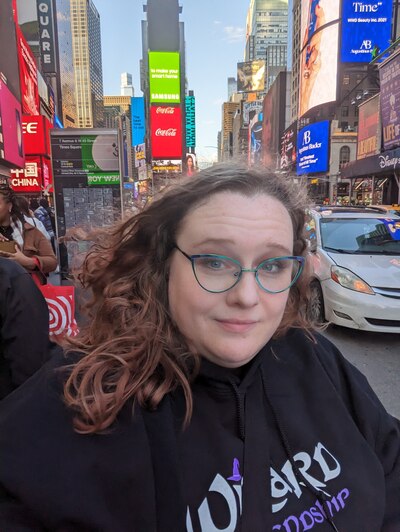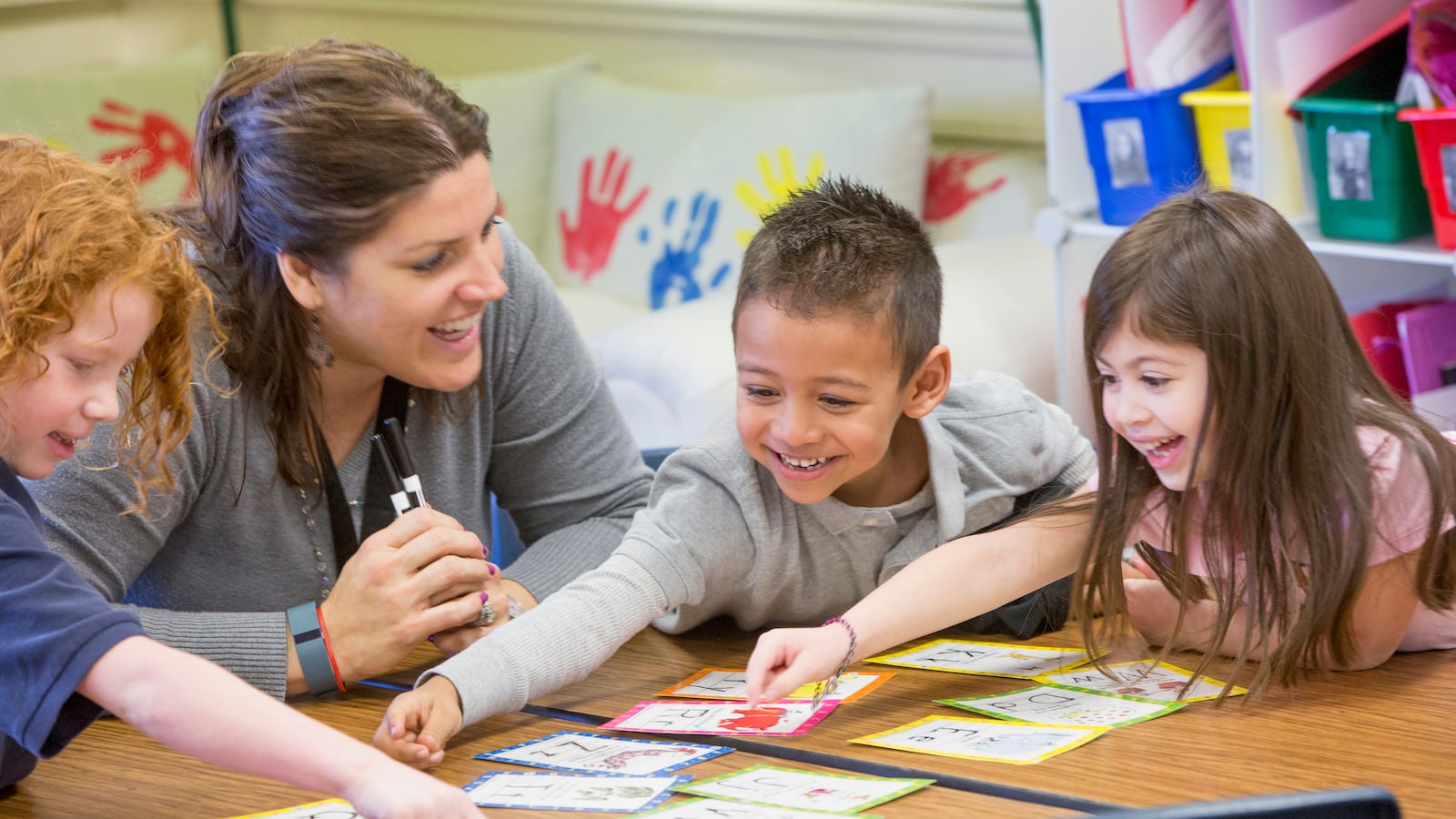Every year, on the first day of school, we take a picture of my now five-year-old son, Percy, by a chalkboard documenting his age, grade, interests, and more. I’m sure you’ve seen these pictures flood your Instagram every September.
In the blank for “when I grow up, I want to be,” most parents I know write in “teacher” or “firefighter,” as dictated by their child. But for my son, I write “an adult” because my dream has always been for him to someday be independent and live his life the way that he wants.

Percy has moderate-to-severe autism spectrum disorder and has struggled his whole life to express himself, often lashing out physically in his frustration. Until last fall, he was entirely non-verbal.
My family and I have centered our lives around finding Percy the support he needs — from therapies for him to parenting classes for us. Yet, when it came to finding a school for Percy, we could not find one that wanted him and his diagnosis. The local school district gave him an IEP with no general education inclusion, and some local charters related that they had limited ability to serve Percy’s needs.
Educators saw a kid who was too hard, who lashed out, and whom they could not support.
Yes, Percy has behavioral issues, and I will be the first to tell you that it is not always easy to get him to do things. But Percy is so much more than just his autism diagnosis. He is also incredibly gifted and talented.
Around his fourth birthday, Percy started reading books and spelling words (in writing) at a breakneck pace. Going from knowing his alphabet to spelling more than 30 words on his own, Percy made it very clear that he was smart, capable, and really loved to learn. He especially loved to learn about the planets. Communicating with his talking tablet, he could name all the planets and their moons in the correct order.
We tried putting Percy in a special education-only environment, as the district recommended. It backfired. He turned to self-harm, banging his head against the wall to communicate his frustration and lack of stimulation. Every single day, he sobbed as we wrestled him into the car. Percy’s love of learning faded, even at home, as he regressed deeper into himself and away from the world.
It wasn’t until I took a wrong turn one day as I drove home from work that I stumbled upon a sign for a new school called Rocketship Explore Elementary. When I got home, I Googled it, and one of the first things I found was talk of “meaningful inclusion” being central to the Rocketship charter network. Students with disabilities such as Percy’s spend part of every day in a general education classroom, with their own paraeducator if needed, and another part of the day in a classroom for students with disabilities.
I enrolled him, and one month in, it was clear that Percy was getting the individualized support he needed to succeed. Today, Percy eats lunch, has recess, learns phonics, and goes on field trips with his general education peers.
I am so proud of Percy. More importantly, he’s proud of himself.
Every morning, his school day starts with a high-energy, school-wide morning assembly the school calls “launch.” This used to be a little overwhelming for my sensory-sensitive son, so he would not always participate, because forced inclusion doesn’t help kids.
But recently, as we walked in, Percy didn’t go on his normal path to his classroom. He watched, observed, found where his homeroom class was sitting, and joined the other students. Never before would he think to himself, “Huh, everyone else is sitting, so I’m going to also.” On that day, though, he sat down and stayed seated until the other kids stood. He observed this behavior and stood on his own! This would have been unheard of just a few months earlier. But meaningful inclusion has meant Percy can join his neurotypical peers at his own pace.
I am so proud of Percy. More importantly, he’s proud of himself. It is a joy to see. And there are so many kids out there like Percy who just need to be seen for who they are, for their exceptional gifts, not just their most challenging behaviors, and to be supported in their learning.
By embracing neurodiversity and providing tailored support for diverse learners, schools can not only transform lives but also reshape the narrative surrounding students with learning and behavioral differences.
Next September, when I pull out that first day of school chalkboard, I think I’ll let Percy fill in that blank himself. Because I know now that he will get to grow up to be anything he wants to be.
Cassie Hauschildt is a mom of two kids living outside of Fort Worth, Texas. Her children attend Rocketship Explore Elementary.



